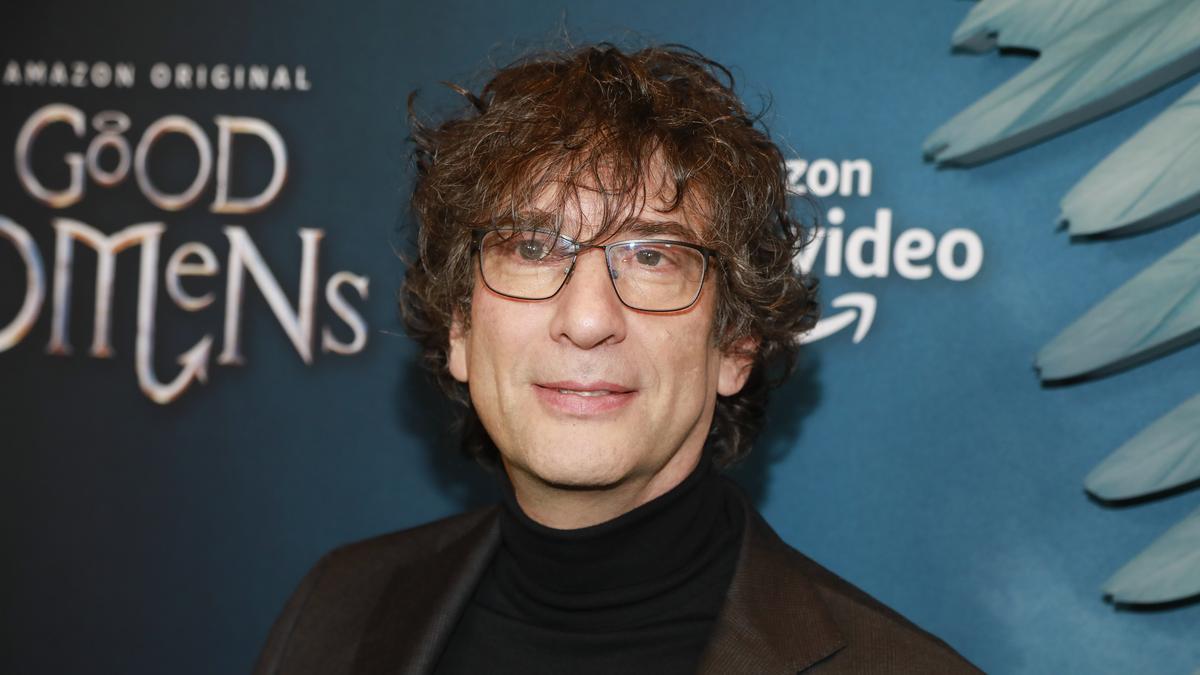
Renowned author Neil Gaiman is currently at the center of serious sexual assault allegations made by two women who were once involved with him in consensual relationships. These allegations, spanning across two decades, have now been formally reported to the New Zealand police, adding a significant twist to the narratives surrounding the celebrated writer.
The allegations initially came to light through the Tortoise podcast series “Master: the allegations against Neil Gaiman.” This four-part series meticulously details the distressing accounts of rough and degrading sexual encounters that the women allege were not always consensual. The revelations have sparked intense discussions across literary and media circles globally.
Neil Gaiman, 63, is best known for his bestselling works such as “The Sandman,” “Good Omens,” and “American Gods.” He has steadfastly denied all allegations of non-consensual sex. Gaiman claims that the New Zealand police did not pursue his offer to assist with one of the complaints back in 2022, a point he argues demonstrates the lack of substance in the accusations.
However, New Zealand police provide a different perspective. They have stated that they made “a number of attempts to speak to key people as part of this investigation and those efforts remain ongoing.” Authorities mentioned the logistical challenges due to the locations of the involved parties as a factor in the case’s complexity.
Among the accusers is Scarlett, 23, who claims that Gaiman sexually assaulted her shortly after their initial meeting in February 2022 at his New Zealand residence. Scarlett was employed there as a nanny to Gaiman’s child. She asserts that within the consensual dynamic of their relationship, Gaiman engaged in rough and degrading sexual acts that were not consensual. Her story is supported by contemporaneous messages, notes, and friends who vouched for her allegations, as thoroughly examined by Tortoise.
Gaiman, however, offers a contrasting narrative. He insists that he and Scarlett only engaged in “cuddling” and “making out” in the bath, with explicit consent for these actions.
. He maintains that all further interactions, including digital penetration, were consensual.
The second woman, K, now revealing her story has added another layer to the allegations. K was 18 when she first met Gaiman at a book signing event in Sarasota, Florida, in 2003. Their romantic relationship began when she was 20, while Gaiman was in his mid-40s. She accuses Gaiman of subjecting her to rough and painful sex that she “neither wanted nor enjoyed.” K recounts a particularly distressing instance where, despite her suffering from a painful infection and asking him to stop, Gaiman continued to penetrate her. This part of the accusation has further intensified the scrutiny on Gaiman’s behavior.
Gaiman denies any unlawful conduct with K, expressing deep disturbance at her allegations. According to Tortoise, Gaiman believes K’s claims are driven by regret over their relationship, while he attributes Scarlett’s allegations to a condition associated with false memories—a claim not corroborated by Scarlett’s medical records.
These allegations have spurred intense debate, not just about Gaiman’s actions but also about the broader issues of consent and power dynamics in relationships involving individuals in positions of significant influence like Gaiman. The case also highlights the complexities and challenges in handling allegations that span across many years and different geographic locations.
The investigation is ongoing, with New Zealand police reiterating their efforts to gather more information and interview relevant parties. The outcome of this investigation could have far-reaching implications, not just for Gaiman’s career but also for how similar cases are handled in the future.
As the literary world grapples with these allegations, the presumption of innocence, the credibility of the accusers, and the impact on the lives of all involved remain at the forefront of this unfolding story. With public attention heavily focused, the results of the police investigation are awaited with keen interest, poised to bring some resolution to these grave accusations.
The case against Neil Gaiman underscores a significant and necessary dialogue on topics such as consent and the responsibilities that come with personal and professional power. The severity of the accusations has already cast a shadow over Gaiman’s otherwise illustrious career, emphasizing that no matter one’s status or achievements, such issues must be addressed with the gravity they deserve.












